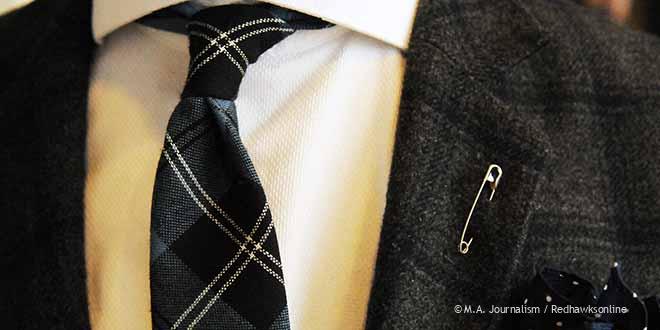After the polarizing presidential election, students must learn to hear each other
Even within a substantially safe environment like Minnehaha, there are members of the community who feel ridiculed for their beliefs. Such feelings of alienation were notably intensified during the 2016 presidential election, when liberal ideologies emerged as popular opinion within Minnehaha’s high school student body.
The division commenced with re-shared political rants on Facebook feeds, vociferous lunchroom discussions and mumbled remarks of vote-shaming under breaths.
The disunity grew with snarky comments and chuckles of superiority, conversations eroding with identical viewpoints and classrooms of like-minded students nodding heads in agreement about the so-called ‘foolish’ Donald Trump supporters.
Discussions crescendo into fervent rallies of complete consensus. Those in the liberal majority were empowered and expressive. Those in the conservative minority, on the other hand, were only distinguishable by their silence. Voices were muffled by the outcries of popular opinion.
“I would not say that I feel ‘silenced’ at school; however, I would say that I do not feel heard at school,” senior Elizabeth Cripe said. “I find that when my beliefs are contrary to popular opinion – which they seem to be more and more – people are not interested in understanding my different perspective. They are interested in proving me wrong, and telling me that I am wrong and assigning me labels without really listening.”
Though not catalyzed by physical violence or blatant bullying, the sentiment of shame that Cripe described cannot be normalized in Minnehaha’s community.
Minnehaha is a place where students are inspired to discuss and discover, comfortable to to explore inquiries and safe to state personal opinions. Minnehaha should be a thriving space for healthy, dynamic conversations – which only occur if more than one party is willing to speak.
I want my peers to be willing to speak, regardless of political stance. Any insightful contribution to conversation will enhance the discussion; I welcome contributions that counter my own for they will challenge me to think and live more empathetically.
I want my classmates to approach conversations with a similar willingness to listen. To my classmates who are upset about the results from the elections: it is unjust to condemn every Trump supporter because, contrary to popular generalizations, not all Trump supporters are racist or misogynistic.
There are Trump supporters and Republicans amongst you. They are your classmates, your teammates, and there is a good chance that they are also your friends. If the latter is true, reflect on why you first initiated, and since maintained, a friendship with these peers. They have attributes in which you admire. A person is not solely his or her political stance.
Be willing to truly hear them; it is exceedingly probable that they have logical rationale. And even if this rationale is contradictory to your own opinion, mocking a classmate for it is not justified.
For the most part, your classmates have virtuous intentions and though they may theorize differently than you, they are not filled with absolute hatefulness. It is your duty to attempt to understand them.
For those who are bewildered by the motivations of Trump supporters, respectfully ask a Trump supporter for their personal insight. Questions may include:
What are your reasons for supporting Trump?
What do you value in a leader of this nation?
Do you acknowledge that Trump has projected comments that are incredibly offensive and hurtful to many groups of people in this country? How do you justify Trump’s remarks?
Are there any political views in which I hold that you are puzzled by?
Ideally, by the conclusion of this conversation, a deeper understanding of each other’s stances will surface. The intention of such a discussion is to not reach absolute agreement. It is meant to instill empathy and respect for each other, and hopefully deem it possible continue a friendship.
I am not commanding anyone to step down from their political convictions in order to establish an equally divided social setting. In fact, I encourage my classmates to continue to stand firm by their causes.
In stance for their concerns, a handful of apprehensive Minnehaha students reacted to the results of the presidential elections with symbolic speech.
Participating in the national Safety Pin Movement, freshman Trent Chiodo and seniors Eli Aronson and Matthew Humason began to sport safety pins on their shirts, distinguishing themselves as allies to those abused for their religion, race, or gender.
The Safety Pin Movement is not specified as a protest against the president-elect, but rather, one against the violent attacks that have transpired in relation to the presidential campaign.
“It’s saying that if you’re being discriminated against, you are safe with me and I will be a friend to you,” Chiodo said. “People asked me about it and have disagreed with my reasons for wearing the safety pin. I’m okay with that because the more people who are aware of what it symbolizes, the better.”
Chiodo displays how critical it is that students stand for what they find paramount while also remaining considerate of those who disagree. It is crucial that those addressing Trump’s hatred are not doing so by exactly reciprocating the marginalization that they are protesting.
Similar to the obligations of American democracy to ensure liberties and justice for all, it is the responsibility of Minnehaha students to assure each other of a safe environment for all to be heard.
For this commitment, it is imperative that students are genuinely willing to listen and those with opposing opinions – to not grow disheartened from speaking confidently, but rather, to be encouraged to listen more attentively.
“It is easy to think that a disagreement means disrespect. It doesn’t,” Cripe said. “I wish everyone at Minnehaha, whether they be faculty or student or staff, were able to recognize the value other people’s opinions can have. Even if we disagree on something, we can still learn from each other.”

